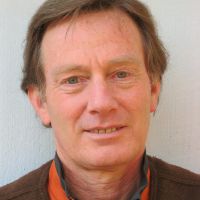Battin et al., 2003
Contributions of microbial biofilms to ecosystem processes in stream mesocosms
Battin, T. J., L. A. Kaplan, J. D. Newbold, and C. E. Hansen (2003)
Nature 426:439-442
-
Christina, INVESTIGATOR
-
Christina, INVESTIGATOR
Plain English Summary
Funding
NSF Award No. DEB-0096276. Title: LTREB: Stream ecosystem structure and function within a maturing deciduous forest. Duration: August 1998–July 2003. Principal Investigator: L. A. Kaplan. Co-principal investigators: B. W. Sweeney, T. L. Bott, J. D. Newbold, J.K. Jackson, and L. J. Standley
Abstract
In many aquatic ecosystems, most microbes live in matrix-enclosed biofilms and contribute substantially to energy flow and nutrient cycling. Little is known, however, about the coupling of structure and dynamics of these biofilms to ecosystem function. Here we show that microbial biofilms changed the physical and chemical microhabitat and contributed to ecosystem processes in 30-m-long stream mesocosms. Biofilm growth increased hydrodynamic transient storage—streamwater detained in quiescent zones, which is a major physical template for ecological processes in streams—by 300% and the retention of suspended particles by 120%. In addition, by enhancing the relative uptake of organic molecules of lower bioavailability, the interplay of biofilm microarchitecture and mass transfer changed their downstream linkage. As living zones of transient storage, biofilms bring hydrodynamic retention and biochemical processing into close spatial proximity and influence biogeochemical processes and patterns in streams. Thus, biofilms are highly efficient and successful ecological communities that may also contribute to the influence that headwater streams have on rivers, estuaries and even oceans through longitudinal linkages of local biogeochemical and hydrodynamic processes.
Citation
Battin, T. J., L. A. Kaplan, J. D. Newbold, and C. E. Hansen (2003): Contributions of microbial biofilms to ecosystem processes in stream mesocosms. Nature 426:439-442. DOI: doi:10.1038/nature02152
Explore Further


